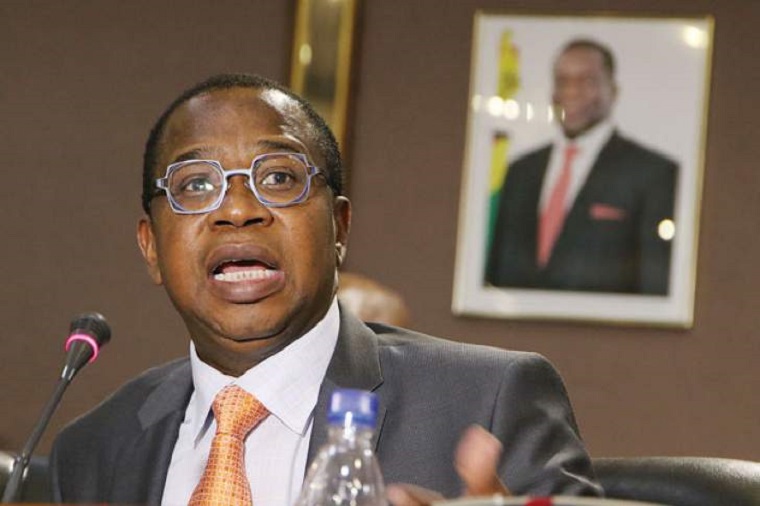 Zimbabwe Finance Minister Mthuli Ncube is asking the US government to tell banks that they will no longer be fined for dealing with Zimbabwe.
Zimbabwe Finance Minister Mthuli Ncube is asking the US government to tell banks that they will no longer be fined for dealing with Zimbabwe.
The country has lost at least 102 correspondent banking relationships as international banks held back over fears of attracting penalties from the US Treasury Department, according to the Reserve Bank of Zimbabwe.
Correspondent banking ties help local banks to process international transactions for their customers. Ncube hopes the USA’s shift to a new set of sanctions will help Zimbabwean banks restore some of these links.
“We requested the US Treasury to issue an advisory note to US banks that they have lifted sanctions and that Zimbabwe is open for business,” Ncube told reporters yesterday during a briefing from Washington, where he is attending annual IMF and World Bank meetings. Ncube says he made the request during meetings with US Treasury officials.
In March, the US replaced the emergency orders it had used to effect sanctions on Zimbabwe for over 20 years with a new set of measures, under what it calls the Magnitsy sanctions.
It retained sanctions on President Emmerson Mnangagwa, 10 other people and three companies. The Zimbabwe Democracy and Economic Recovery Act, a separate set of sanctions that the US has imposed on Zimbabwe in 2001, also remains.
Banks have found themselves in trouble over Zimbabwe transactions.
For handling ZB Bank transactions while it was under sanctions, CBZ incurred a US$385 million penalty from the US. The penalty was lifted in 2020.
In 2019, Standard Chartered Bank plc was fined US$18 million for violating American sanctions on Zimbabwe by handling transactions for sanctioned state-owned firms.
In 2016, Barclays plc paid a US$2.5 million settlement to the US Treasury for transactions it did for the state-owned Industrial Development Corporation, then under sanctions.
This has seen many international banks cutting ties to Zimbabwe, having weighed that the risks of dealing in Zimbabwe outweigh the rewards.
In 2021, Deutsche Bank cut correspondent banking ties with Stanbic Bank.
Bankers Association of Zimbabwe head Lawrence Nyazema has previously said “most local and regional banks effect international transfers through third parties, which regrettably adds to the cost as well as turnaround time”.
US officials have said “overcompliance” with its sanctions has caused many banks and companies to avoid Zimbabwe.
Recently, US chargé d’affaires Laurence Socha said “it was hard, under a previous Zimbabwe sanctions program, to get away from the perception that you couldn’t do business in Zimbabwe. That is not true”.”- NewZWire
(383 VIEWS)


It is the Zimbabwean leadership that say that sanctions were not lifted as long as the president is on sanctions. By saying this they are confusing the internationa business community including banks. They must send the right information to the world that sanctions indeed were removed and the country is open for business. This will complement US efforts with sending out the right information.